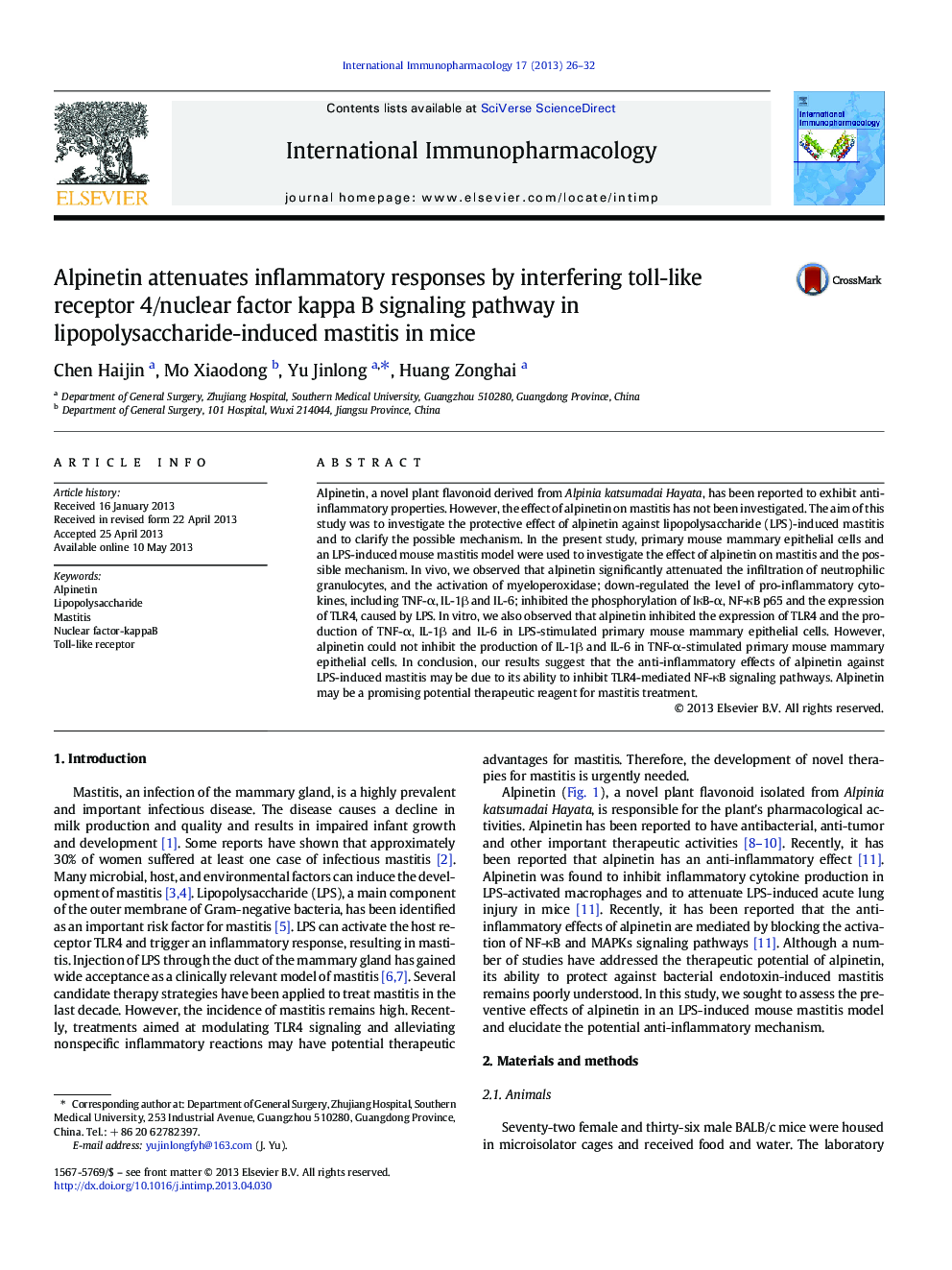| Article ID | Journal | Published Year | Pages | File Type |
|---|---|---|---|---|
| 5832915 | International Immunopharmacology | 2013 | 7 Pages |
Abstract
Alpinetin, a novel plant flavonoid derived from Alpinia katsumadai Hayata, has been reported to exhibit anti-inflammatory properties. However, the effect of alpinetin on mastitis has not been investigated. The aim of this study was to investigate the protective effect of alpinetin against lipopolysaccharide (LPS)-induced mastitis and to clarify the possible mechanism. In the present study, primary mouse mammary epithelial cells and an LPS-induced mouse mastitis model were used to investigate the effect of alpinetin on mastitis and the possible mechanism. In vivo, we observed that alpinetin significantly attenuated the infiltration of neutrophilic granulocytes, and the activation of myeloperoxidase; down-regulated the level of pro-inflammatory cytokines, including TNF-α, IL-1β and IL-6; inhibited the phosphorylation of IκB-α, NF-κB p65 and the expression of TLR4, caused by LPS. In vitro, we also observed that alpinetin inhibited the expression of TLR4 and the production of TNF-α, IL-1β and IL-6 in LPS-stimulated primary mouse mammary epithelial cells. However, alpinetin could not inhibit the production of IL-1β and IL-6 in TNF-α-stimulated primary mouse mammary epithelial cells. In conclusion, our results suggest that the anti-inflammatory effects of alpinetin against LPS-induced mastitis may be due to its ability to inhibit TLR4-mediated NF-κB signaling pathways. Alpinetin may be a promising potential therapeutic reagent for mastitis treatment.
Related Topics
Life Sciences
Immunology and Microbiology
Immunology
Authors
Chen Haijin, Mo Xiaodong, Yu Jinlong, Huang Zonghai,
